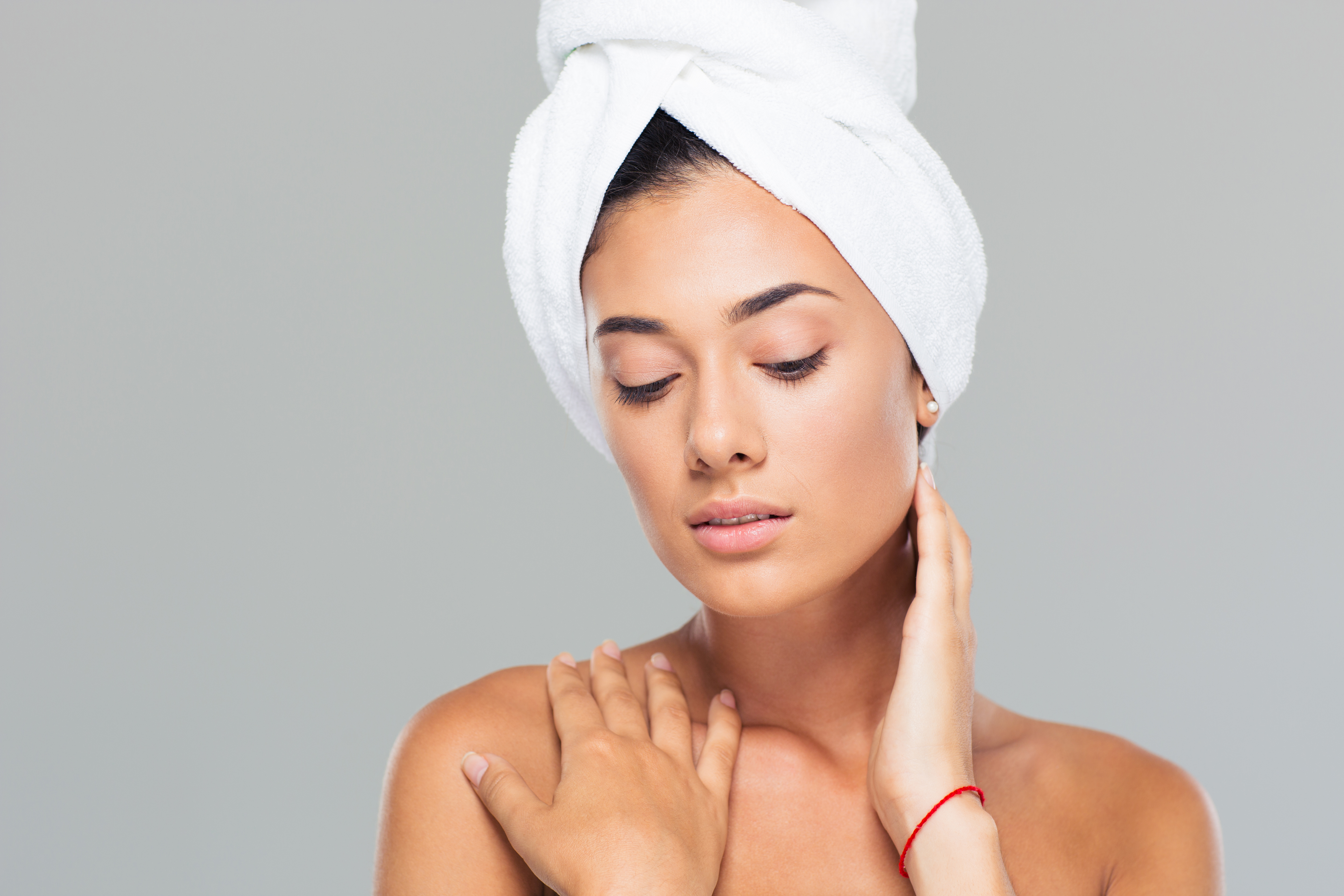Understanding the root cause of your hormone acne
If you’re an adult that struggles with acne, the likelihood is that your hormones are to blame.
And when the root of your acne issues is hormones, then topical treatments might not be doing the trick. That’s because you’re only treating the symptoms, not the cause!
First, let’s look into the hormonal causes of acne, then at one of the best ways to fight it!
When using a holistic approach to fighting acne, the goal is to understand what are factors contributing to overactive oil glands and what can we do to manage it. Acne is more than a skin disease. It is a reflection of what is going on internally. It is your body’s way of telling you that there is in imbalance that needs to be addressed.
In most cases, especially with younger women, the cause of acne can be linked to issues with hormonal imbalance and that is one of the more difficult types of acne to treat or eliminate. Acne in this case is merely a symptom of a serious internal health issue and usually requires a completely lifestyle overhaul. There’s no magic pill. This hormonal imbalance if left untreated is what can lead to more challenging female conditions down the line such as infertility, endometriosis, heart disease and even ovarian cancer.
Oftentimes we invest in topical skin care treatments or antibiotics that simply manage the outer layer. This is usually ineffective. Birth control is often prescribed to young women to manage their acne. I recently published an article on why I don’t think that taking birth control to manage hormonal acne is a good idea.
Hormonal acne can actually be a good thing, if you like to see things in the positive light like myself. This is because you are receiving a signal from your body that, ‘hey! Something’s not right here.’ It’s an indication that your body needs help and should not be ignored.
The problem with most acne treatments, is that they are solely designed to manage the acne itself and basically put a band-aid over the issue. Which is why I believe the acne fight is mostly internal. This requires learning and understanding. It also takes time and patience. Our bodies and our internal systems are quite complex.
The good news is that once we identify where there is an imbalance, it will not only make it easier to manage and even treat hormonal acne but it will also help in promoting whole body health. It is a good idea to start the process soon and get the acne under control before it leads to scarring. That is another battle and entirely different beast to tackle.
– via Ladies Balance
Food Could Be The Key
When it comes to healing your skin, one of the most important things isn’t what you use topically – it’s what you put into your body. Watching your diet and making sure you eat the right things – and avoid the more toxic ingredients – could mean you end up with better skin than you ever imagined!
In 1984, the first study was conducted in Finland that showed a diet-hormone connection.
Lower saturated fat consumption– Dr. Esa Hamalainen and her team showed that by switching from a diet high in saturated fat to one with 38% less fat and more inclusive of polyunsaturated fats (nuts, seeds, fish, algae, leafy greens) for six weeks, there was a significant reduction in androstenedione (precursor to testosterone) and testosterone in the blood. Over the years, the results of this study have been reproduced again and again.
Increase fiber consumption– In other studies, in addition to lowering fat consumption, increasing fiber consumption has also been evaluated. What has been found is that a high fiber diet will also decrease blood testosterone, DHT and DHEA. In America, the average daily consumption of fiber is 13 grams. The recommended daily dosage is 25 grams for women and 38 grams for men. As you can see, it may be beneficial for anyone suffering from acne to increase their fiber.
Decrease milk consumption– If you recall from above, DHT is able to bind to the receptors in the oil glands and “turn them on” so as to trigger oil production and acne. The problem with milk, in correlation to acneic skin, is that the hormones have already been converted into DHT by the cow and enter the human system ready to bind to an oil gland and create a breakout. This information was discovered by Dr. William Danby, Dermatologist, who has researching the diet-acne connection since the 1970’s.
Increase alkaline foods and decrease acidic foods– meat based proteins coffee, alcohol, sugar and processed grains, items heavily consumed in the typical America diet, are acid forming in the system. Whereas, fruits, vegetables and whole grains are alkalinizing to the system. Over-acidification is known as acidosis.
The main symptom of acidosis is fatigue. This is universal. Other symptoms include: loss of enthusiasm for life, loss of sex drive, poor sleep quality, depression and tiring quickly both mentally and physically. Advanced stage symptoms of acidosis include: sensitivity to cold, low blood pressure, hypo or hyperthyroid and low blood sugar. These symptoms are caused because the main minerals that are required to nourish the nervous system, such as calcium, magnesium, and potassium, are the very same minerals that the body uses to neutralize acids!
Because stress also causes acidity it is not surprising that studies have shown that alkaline foods neutralize these acids and reduce cortisol level, the stress hormone (which we mention below is present at higher levels in acne patients).
Just by eating more fresh fruits, vegetables and whole grains in replace of meat, sugar and other processed foods you will not believe how amazing you feel in just a few days!
– via Natural Acne Clinic
Do you struggle with acne? What’s the best treatment you’ve ever discovered?
